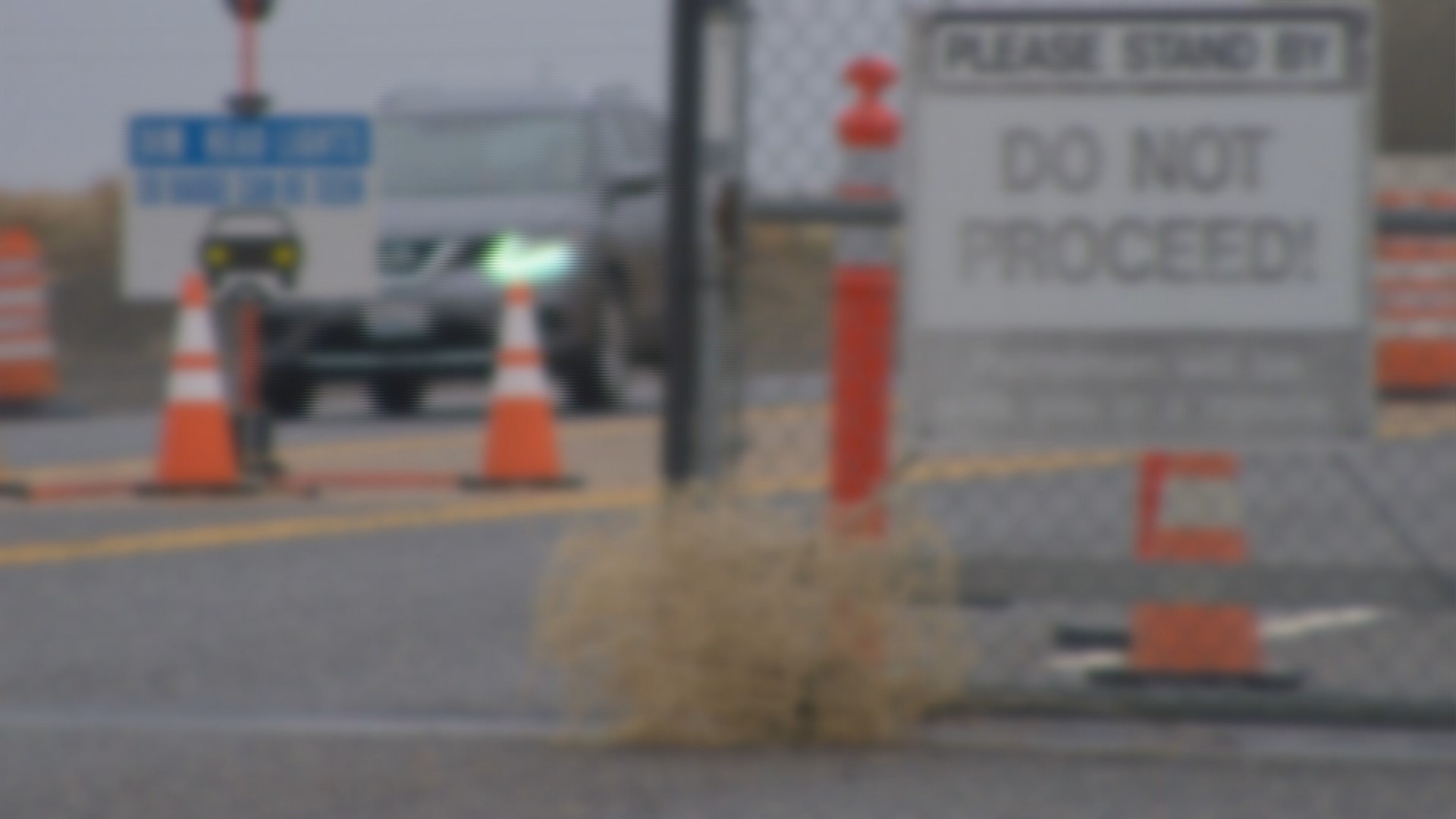A veteran worker of the Hanford nuclear site has learned that a car filter removed and tested by a scientist in Boston came up contaminated with the radioactive isotope of americium 241. The worker’s car had been deemed “clean” in surveys conducted in December and February by the Hanford government contractor, CH2M Hill.
“I’m just stunned. I’m angry, but that goes without saying. Now I wonder, ‘How far has it gone? Did I take it home? How long has this been going on?’” said the worker who did not want to be identified for fear of retaliation.
The worker’s filter was one of two that tested positive for the dangerous element, said the principal investigator, Dr. Marco Kaltofen of the Worcester Polytechnic Institute’s Nuclear Science and Engineering Program near Boston. Kaltofen is also a Hanford expert.
Five filters total were collected by the Seattle-based watchdog group, Hanford Challenge, and sent to Kaltofen. The two that came up with radioactive isotopes had previously been declared free of contamination, said Tom Carpenter, executive director of Hanford Challenge.
“Americium is a rare radioactive element, and does not belong in anybody’s engine compartment,” said Carpenter. “The fact that vehicles were checked and released to these workers, only to find that they were still contaminated, raises disturbing questions about the credibility of Hanford’s program.”
“The kind of materials we’re talking about at Hanford are suspected to cause cancer or known to cause cancer. A person’s personal car shouldn’t contain radio-isotopes for weapons manufacturing. That’s pretty simple,” said Kaltofen.
Americium is a radioactive material used in the production of plutonium for nuclear bombs at Hanford from World War II through the Cold War. According to the Environmental Protection Agency (EPA), americium-241 emits alpha particles “poses a significant risk if enough is swallowed or inhaled. Once in the body…it generally stays in the body for decades and continues to expose the surrounding tissues to radiation. This may eventually increase a person’s chance of developing cancer.”
“I’ve driven to Oregon and others have taken their cars out of state. We have no idea how far we’ve spread (radioactive matter),” said the worker with americium on the car filter.
The US Dept. of Energy, which owns Hanford, and its contractor CH2M Hill, have been plagued with a spread of radioactive particles from a demolition project that was supposed to be completed by September 2017. Instead, the project to take down the historic and lethally contaminated Plutonium Finishing Plant (PFP) is on hold as Hanford officials try to find ways to continue the work in a safe manner.
The first loss of control of plutonium particles at the PFP job occurred in June. At first, Hanford officials downplayed the event and reported it didn’t appear anyone had inhaled the contaminants. That turned out to be untrue. Thirty-one workers ended up testing positive for inhalation of plutonium, including the worker with newly discovered americium on the car filter.
“It makes me want to get the hell away from this place. Everything has gone to hell and I don’t know how they’re going to get it back together. They still don’t seem to be listening,” said the worker.
A second spread of radioactive particles occurred in December. The demolition has been shut down since then. It was during that event that the worker interviewed by KING was told their vehicle had contamination on it. The contractor decontaminated the car and returned it for use.
“Clearly [the Hanford contractor] made some mistakes. They’re not done with their work yet and prudence dictates we do more to make sure these cars are clean and safe for the drivers and their families,” said Kaltofen.
The U.S. Dept. of Energy regularly posts PFP updates on its website. On February 20, the update referred to the testing conducted by Hanford Challenge and Dr. Kaltofen.
“A Seattle-based interest group issued a press release today stating that laboratory analysis of air filters from two personal vehicles that had been parked at PFP detected americium-214. Neither CHPRC (CH2M Hill) nor DOE were given the opportunity to conduct split sampling or analysis. The press release does not provide the levels of americium-214 detected in the air filters,” wrote US DOE representatives. “Follow-up surveys of personal vehicles conducted as part of requested home surveys found no contamination in vehicle air filters. Resurveys of personal vehicles conducted in January found no contamination in air filters.”
‘I’m thrilled they’re questioning the results. I’d love for them to go repeat the tests and do a thorough job of analyzing all the cars that were released,” said Kaltofen. “It could be that some of those cars were released prematurely and there’s more work that needs to be done. Yes, this is the best kind of flattery a scientist can get and that is having someone like DOE repeat the work.”
Since June, the Dept. of Energy reports that 41 PFP workers have tested positive for internal contamination. Forty-three more test results are yet to be returned. In the December loss of control of radiation, 27 government-owned vehicles were found to have contamination on them in addition to the seven private cars.
The PFP is where the Hanford workforce produced plutonium “buttons” throughout the Cold War for use in building nuclear warheads. Since 1989 the Hanford site has been a cleanup operation only that costs taxpayers approximately $2 billion a year.


